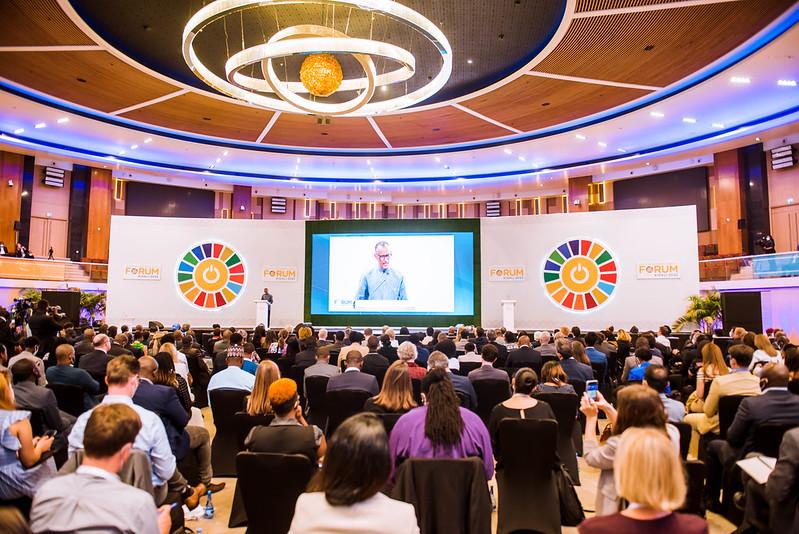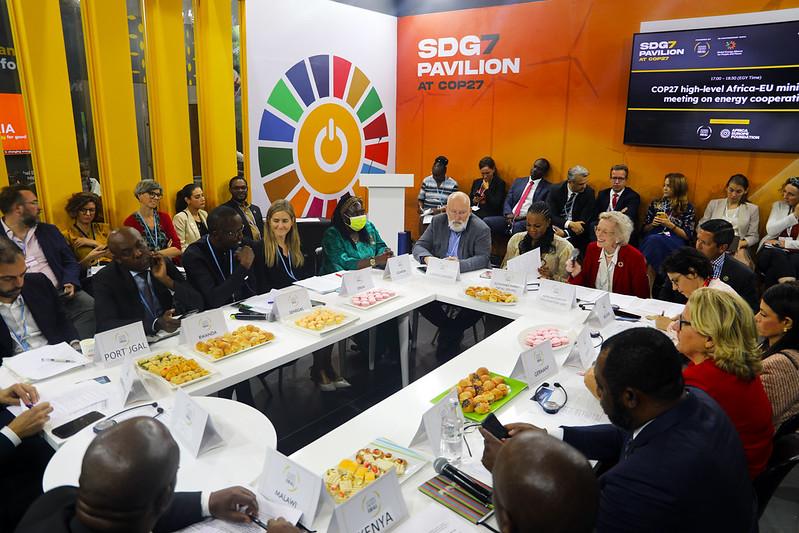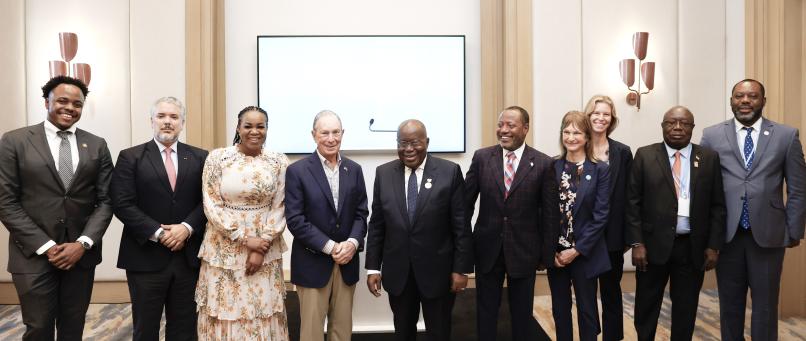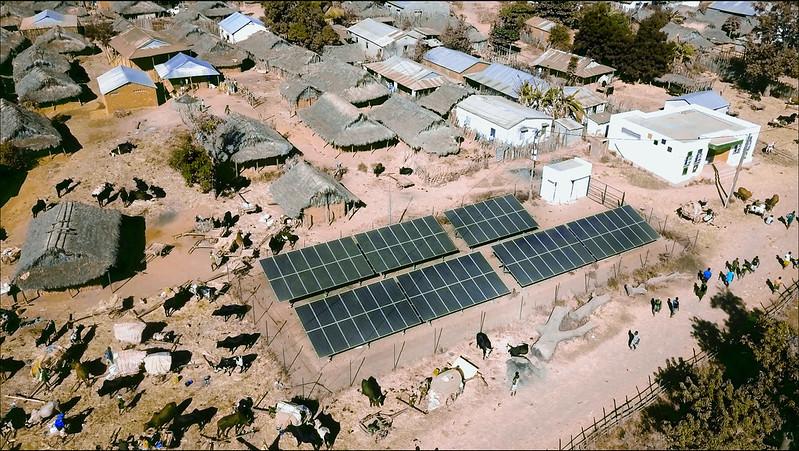Universal Energy Facility to grant up to USD 10.4 million for renewables in Democratic Republic of the Congo, Madagascar and Sierra Leone
The Universal Energy Facility (UEF) – a multi-donor results-based financing facility managed by Sustainable Energy for All (SEforALL) – is signing several grant agreements with mini-grid companies in the Democratic Republic of the Congo (DRC), Madagascar and Sierra Leone in the coming weeks. The grantees will receive financial support to build solar mini-grids in communities without access to clean energy and where other polluting energy sources, such as diesel and petrol generators, charcoal and firewood, are common.
“Accelerating access to reliable, sustainable and affordable electricity to those most in need is the central focus of UEF and its partners,” said Anita Otubu, Senior Director of the UEF. “This is a big step and the first of many we need to take to continue improving people’s lives in Africa. Access to clean energy is a life-changing step that leads to economic growth, empowering women, reducing C02 emissions, and creating jobs - among other benefits.”
The USD 10.4 million of additional funding is for 17,628 connections distributed among six companies, benefiting an estimated 88,000 people in 29 communities in the three countries. During the next 12 months, the beneficiaries will construct and commission 29 mini-grids with an estimated 3.7MW of renewable energy capacity installed, leading to an avoidance of approximately 1,800 tonnes of CO2 equivalent emissions per year.
“Once again, the UEF proves to be a rapid, cost-effective solution for accelerating the deployment of clean energy grants,” said Edward Borgstein, Managing Director at the Global Energy Alliance for People and Planet (GEAPP), a UEF donor. “As a partner, having access to a robust and efficient mechanism to get funds to work is crucial as we seek to accelerate electricity access in some of the world’s most energy-poor locations.”
Democratic Republic of the Congo
Despite having an immense and varied energy potential from renewable resources including hydroelectric, biomass, solar and geothermal power; only 49 per cent of its 96 million people have access to electricity, most of them in urban centres, according to the World Bank. As a solution, and to support the government’s efforts to significantly increase power connections, the UEF launched its mini-grid programme in the DRC in October 2022.
The UEF recently signed the first grant agreement for USD 3.8 million with Electrilac S.A.S, a subsidiary of Green Enesys, with the goal of providing 6,500 new electricity connections and installing 2.5MW of renewable energy capacity. These connections are expected to positively impact over 30,000 people, providing them with new or improved access to electricity.
“The financial support from the UEF and partners is crucial to promoting a robust and dynamic energy market in the DRC. This will bring sustainable and reliable energy to underserved communities, delivering a catalytic impact in creating more and better jobs, new business opportunities, and in contributing to the sustainable socio-economic development of the region,” said Ranjith Rao, Chief Business Development Officer, Green Enesys “We see this type of support as a win-win situation for our business, but also for the government and the people of the DRC.”
Madagascar
According to the World Bank, only 73 percent of the Malagasy population has access to electricity in urban areas and only 11 percent in rural areas.
To support electrification efforts, the UEF opened its first funding window in 2020, signing grant agreements with two developers for nine mini-grid sites, resulting in 2,496 expected electricity connections. In its second wave of funding, the UEF is signing grant agreements with WeLight, ANKA, Autarsys and Jiro Taratra/Africa GreenTec, totaling USD 5.9 million for an additional 21 mini-grids. This will result in 9,935 new electricity connections and 0.99MW of renewable energy capacity installed. These connections are expected to impact nearly 50,000 people in regions with strong economic growth potential and in sectors such as agriculture and trade by providing new or improved access to electricity.
"The Government of Madagascar is fully committed to identifying and implementing appropriate strategies to accelerate access to electricity for communities, particularly in rural areas, using appropriate and effective mechanisms,” said Mamisoa Rakotoarimanana, Executive Secretary, Agency for Rural Electrification Development. “Initiatives such as the UEF are highly appreciated when it comes to identifying key partners to support our strategy while simultaneously delivering substantial results.”
“At Africa GreenTec, we align our actions with the Sustainable Development Goals (SDGs), including SDG 17: Partnerships for the Goals,” said Moritz Brauchle, Managing Director, Africa GreenTec. “Therefore, we are grateful to have found a strong partner in UEF with whom we can jointly achieve our goal of sustainable impact through renewable energy solutions.”
To date, the UEF mini-grid programme in Madagascar is the fastest growing and the largest beneficiary of UEF grants.
Sierra Leone
The Government of Sierra Leone is committed to significantly increasing the national electrification rate, aiming to reach 92 percent by 2030. This ambitious goal is a response to the current access rate of just 26 percent, which falls to 5 percent in rural areas. With these low electricity access rates, the government recognizes the urgent need to implement electrified mini-grid systems to bridge this gap.
Since 2020, the UEF has committed over USD 2 million in grant agreements for the deployment of mini-grid projects in two different funding windows. The UEF plans to sign a USD 706,000 grant agreement with Energicity (SL) Limited to develop seven mini-grids. This project is expected to provide 1,193 electricity connections and 0.2MW of renewable energy capacity that will impact the lives of nearly 6,000 people.
Additionally, the UEF has issued conditional offer letters to developers for the construction of more than 20 mini-grid sites, showing substantial progress in the application process in the DRC, Madagascar and Sierra Leone. After the successful completion of all the requirements, the UEF will potentially extend grant agreements in the coming months.
More information on the UEF is available here.



